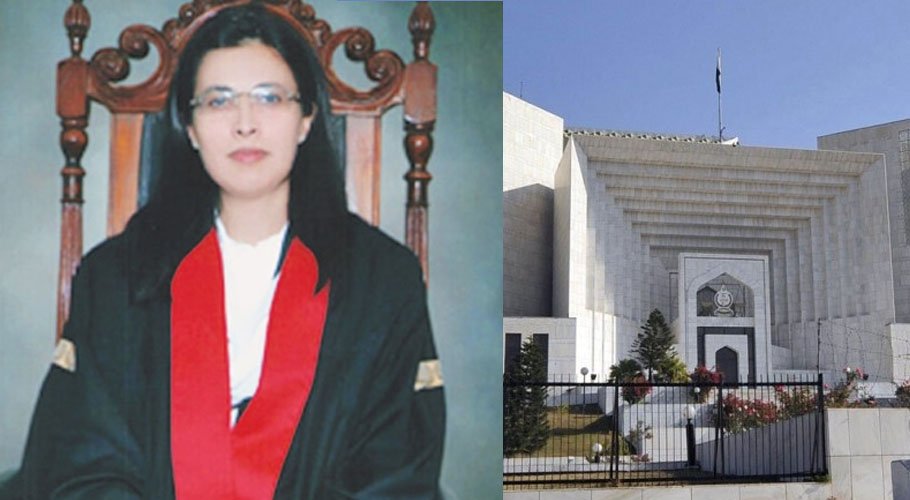The Judicial Commission of Pakistan (JCP) has not approved the nomination of Justice Ayesha Malik as a Supreme Court (SC) judge.
“As a lawyer, I feel that the JCP needed to set a transparent criteria for appointment, failing which has resulted in what we have seen today. And I feel that the more unstructured this becomes, more transparency is lost within the judicial system,” lawyer Noor Ejaz told The Current.
“As a woman, I am disappointed. Women in law have rarely been given high ranks without being under strict scrutiny. I hope Justice Ayesha serves as the CJ of the Lahore High Court and is elevated to the Supreme Court soon and I hope the JCP implements a structure so that other women can aspire towards higher office without fearing how discretion might treat them,” added Noor Ejaz
“It is a dark day because first-time nominee of a woman judge’s elevation to the Supreme Court could not be approved,” senior journalist Hasnaat Malik told The Current.
He also added that if Justice Ayesha is not elevated to the SC, then she will become Chief Justice of the Lahore High Court. “Justice Ayesha’s name can be initiated anytime for the SC,” said Hasnaat.
There was tie in JCP meeting. Four members were in favour while four opposed Justice Ayesha's elevation. Under the constitution, JCP has to decide by majority members. https://t.co/JcD1suDvkM
— Hasnaat Malik (@HasnaatMalik) September 9, 2021
Read more- In-depth analysis: Everything you need to know about Justice Ayesha Malik’s SC appointment
Human Rights Watch (HRW) welcomed the nomination of Justice Ayesha Malik to the Supreme Court of Pakistan. However, lawyers across the country recorded their protest today.
As per the Lahore High Court website, Justice Ayesha Malik completed her education from Paris and New York and did her Senior Cambridge from the Karachi Grammar School in Karachi. She did her A-Levels from the Francis Holland School for Girls in London. She assumed office in March 2012







